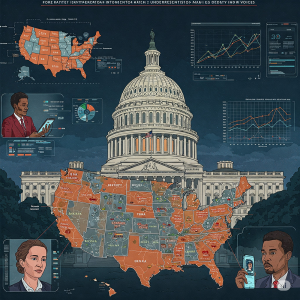

Enhancing Congressional Effectiveness: A Strategic Analysis of Amplifying Constituent Voice
We analyze how the U.S. Congress can better incorporate constituent voices to enhance its effectiveness, particularly given low public trust and the significant influence of party leaders and donors. It explores how a "representation gap" exists when legislators prioritize these influences over constituent preferences, driven partly by electoral incentives and perceptions of voter disengagement. The document then assesses the strategic potential of civic technology and artificial intelligence to overcome these challenges by providing tools for processing feedback, identifying key public concerns, and facilitating deliberation, while also cautioning about the risks of digital divides, manipulation, bias, and the need for robust governance to ensure equitable and trustworthy engagement.
More Episodes
All Episodes>>Create Your Podcast In Minutes
- Full-featured podcast site
- Unlimited storage and bandwidth
- Comprehensive podcast stats
- Distribute to Apple Podcasts, Spotify, and more
- Make money with your podcast












